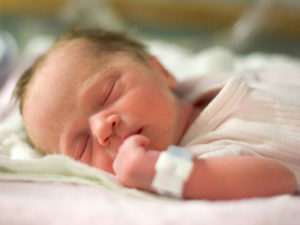 In a newly published study looking at how infant gut microbes change over time, once again babies had differences in gut bacteria depending on whether they were delivered vaginally or by Cesarean section.
In a newly published study looking at how infant gut microbes change over time, once again babies had differences in gut bacteria depending on whether they were delivered vaginally or by Cesarean section.
But what's interesting is that stopping breastfeeding changed their gut bacteria more (to more adult-like species) than just introducing solid foods. Certain types of bacteria thrive on the nutrients breast milk provides and once these nutrients are no longer available, then other bacteria emerge that are more commonly seen in adults. In other words, stopping breastfeeding seems to drive "maturation" of the gut bacteria.
From The Scientist: Maturation of the Infant Microbiome
Like babies themselves, the intestinal microbiomes of infants start out in an immature state and over time grow into communities similar to those of adults. In a new survey of 98 Swedish babies whose microbiota were sampled several times during their first year of life, researchers found that the microbiomes of breastfed infants persisted in a “younger” state longer than those of non-breastfed babies, even after the introduction of solid foods.
The conclusion that “stopping breastfeeding—rather than introducing solids—drives maturation is a new idea, because we all thought so far that solids introduction was a key factor in changing the microbiota,” said Maria Gloria Dominguez-Bello, a microbiologist at New York University School of Medicine who did not participate in the study.
Researchers from University of Gothenburg in Sweden and their colleagues found more adult-like taxa in the microbiomes of babies who stopped breastfeeding earlier, while the microbiota of babies breastfed for longer were dominated by bacteria present in breastmilk. The results, published today (May 13) in Cell Host & Microbe, are part of an effort to catalog the microbial changes that occur as children age and to note how those changes correlate with health and disease. Fredrik Bäckhed of Gothenburg and his colleagues collected stool samples from 98 moms and their newborns, and again sampled the babies’ stool at four and 12 months.
Confirming previous work, his team’s analysis found that the 15 babies born via cesarean section were colonized by different bacteria—many from oral and skin communities—than babies born vaginally, who shared numerous microbes with those present in their mothers’ stool.
For instance, in the vaginally delivered newborns’ microbiomes, genes that break down sugars in breastmilk were common. As these babies celebrated their first birthdays, the genes in their microbiomes favored the ability to breakdown starches, pectins, and more complex sugars.
“What’s nice about this paper is that they show this maturation [of the microbiome] in normal, healthy kids in a Western population follows this transition based on diet,” said Steven Frese, a postdoc at the University of California, Davis, who penned a commentary accompanying the study with his advisor, David Mills. “Being exposed to new foods promotes the growth of new bacteria that can consume them,” Frese told The Scientist.
